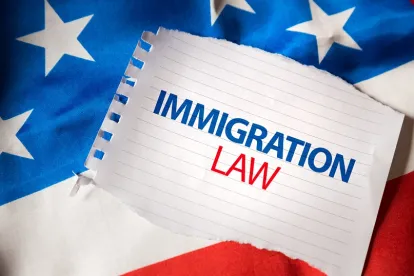On October 8, 2019, U.S. Citizenship and Immigration Services (“USCIS”) announced that will no longer accept previous editions of the following forms if filed on or after October 15, 2019:
-
Form I-485, Application to Register Permanent Residence or Adjust Status
-
Form I-129, Petition for a Nonimmigrant Worker
-
Form I-539, Application to Extend/Change Nonimmigrant Status
-
Form I-539A, Supplemental Information for Application to Extend/Change Nonimmigrant Status
-
Form I-864, Affidavit of Support Under Section 213A of the INA
-
Form I-864EZ, Affidavit of Support Under Section 213A of the Act
USCIS will only accept the “10/15/19” edition of the above forms, which are available online at https://www.uscis.gov/forms, starting October 15, 2019. Submission of a prior edition on or after October 15 may result in the rejection or denial of the application or petition. Please also note the new Form I-485 must include the new Form I-944, Declaration of Self-Sufficiency, when making a submission on or after October 15, 2019.
Forms I-129 are submitted for employers sponsoring H-1B, H-2A, H-2B, H-3, L-1, O-1, O-2, P-1, P-1S, P-2, P-2S, P-3, P-3S, Q-1, or R-1 visa work authorization, as well as requesting an extension of stay in or change of status to E-1, E-2, E-3, H-1B1, or TN, or one of the above classifications for a foreign national. Forms I-539/I-539A are submitted for the spouse and minor children of the above H, L-1, TN, O-1, P, Q, R, and E visa beneficiaries. Forms I-485 are submitted for those in the final stages of the U.S. permanent residency (i.e., green card) process.
USCIS Announces 30-Day Extension of the Commentary Period for Its Proposed H-1B Electronic Registration Requirement
In December 2018, USCIS proposed implementing a new “Registration Requirement” in lieu of filing the H-1B petitions for the annual “H-1B cap lottery.” It has taken almost a year for USCIS to finish accepting public commentary on implementing this system. Further delays have pushed back completing public commentary. As a result, the agency has reopened the public feedback period from October 9 to November 8, 2019.
Under USCIS’s proposed Electronic Registration requirement, all H-1B petitioners would have to submit an online registration application through USCIS’s website for each employee to be sponsored under the H-1B cap lottery. The initial Electronic Registration process would replace the actual filing of H-1B petitions prior to the H-1B cap lottery. Once the H-1B cap lottery is completed, USCIS would notify those who are selected that they must file their full H-1B petition within a specified time.
After the commentary period ends, USCIS is expected to finalize the Electronic Registration process. Epstein Becker Green will keep you updated on the details of the final rollout.
ICE Initiates New Policy for School to Police OPT and STEM OPT Work Authorization
On September 27, 2019, Immigration and Customs Enforcement (“ICE”) submitted new guidance to Designated School Officials (“DSO”) who issue Forms I-20 to report on and police their foreign national graduates employed through either Optional Practical Training (“OPT”) or science, technology, engineering, and mathematics (“STEM”) OPT work authorization. Specifically, DSOs will be required to provide ICE’s Student and Exchange Visitor Program (or “SEVP”) with confirmation that their graduates are directly employed in positions related to their course of study. In implementing this policy, DSOs are given the added responsibility and the administrative policing task of monitoring their OPT and STEM OPT graduates to confirm that the graduates hold employment positions specifically related to their degree. The extent and detail to which a DSO must do so is open to question and subject to further follow-up.
U.S. Department of Labor Fines Minnesota Foundry Company $190,357 for Failure to Communicate H-1B Termination to USCIS
On October 8, 2019, the U.S. Department of Labor’s Wage and Hour Division fined ME Global Inc., a steel foundry company located in Columbia Heights, Missouri, $190,357 for back wages and interest due to the company’s failure to follow H-1B visa requirements. The facts involve ME Global Inc.’s failure to (i) offer its terminated H-1B employee his transportation costs home, (ii) notify USCIS of the termination, (iii) properly post the labor condition application (“LCA”), and (iv) properly maintain a Public Access File (“PAF”) for this terminated H-1B employee. This is an example of why employers must properly post and maintain their LCAs and PAFs, as well as comply with all USCIS regulations when an H-1B employee is terminated, including notifying USCIS of such termination.





 />i
/>i
